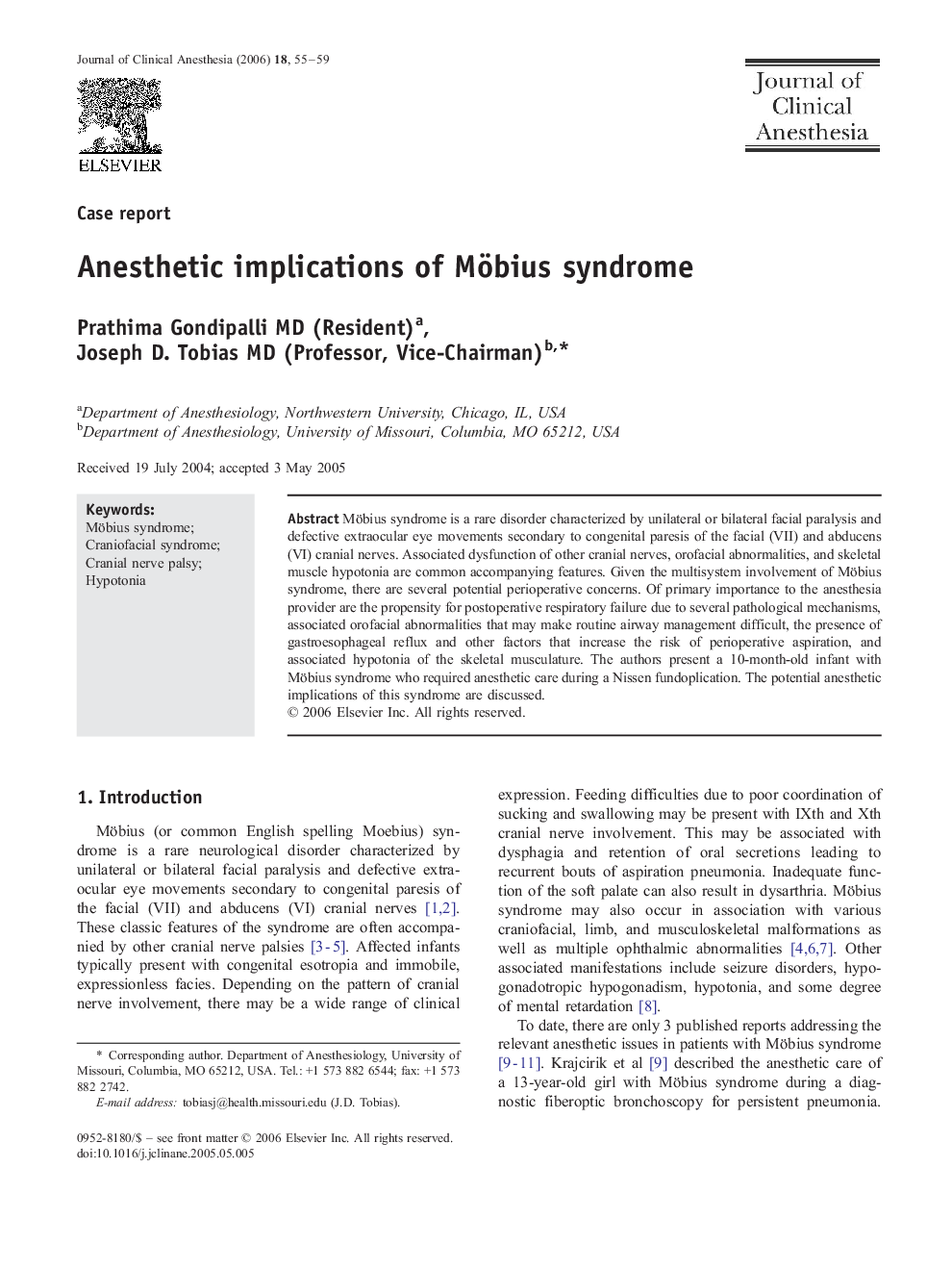| Article ID | Journal | Published Year | Pages | File Type |
|---|---|---|---|---|
| 2764027 | Journal of Clinical Anesthesia | 2006 | 5 Pages |
Möbius syndrome is a rare disorder characterized by unilateral or bilateral facial paralysis and defective extraocular eye movements secondary to congenital paresis of the facial (VII) and abducens (VI) cranial nerves. Associated dysfunction of other cranial nerves, orofacial abnormalities, and skeletal muscle hypotonia are common accompanying features. Given the multisystem involvement of Möbius syndrome, there are several potential perioperative concerns. Of primary importance to the anesthesia provider are the propensity for postoperative respiratory failure due to several pathological mechanisms, associated orofacial abnormalities that may make routine airway management difficult, the presence of gastroesophageal reflux and other factors that increase the risk of perioperative aspiration, and associated hypotonia of the skeletal musculature. The authors present a 10-month-old infant with Möbius syndrome who required anesthetic care during a Nissen fundoplication. The potential anesthetic implications of this syndrome are discussed.
